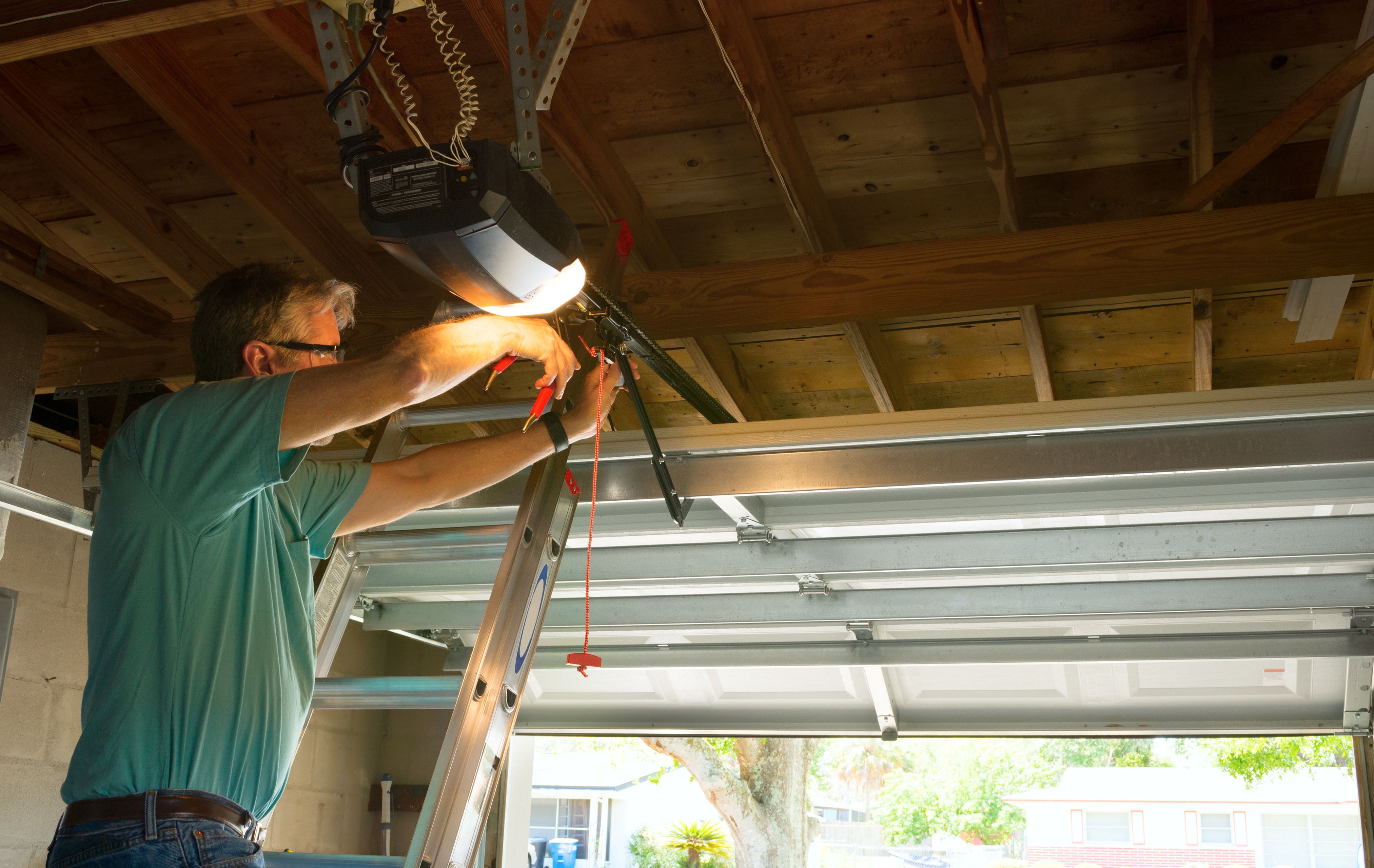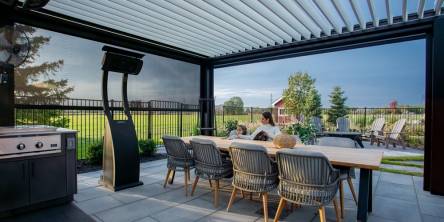Custom Garage Door Materials: What’s Right for Your Home?

Choosing the right garage door material can significantly affect your home's curb appeal, functionality, and long-term maintenance. With several options available, it's essential to understand the pros and cons of each material to determine what works best for your home.
This guide will walk you through different garage door materials, helping you make an informed decision.
Steel: Durability and Strength
Steel is one of the most popular choices for garage doors, primarily because of its strength and durability. Steel doors are resistant to warping, cracking, and breaking, making them ideal for homeowners who want something that lasts. Additionally, steel garage doors are low-maintenance, requiring only occasional cleaning and painting. For those seeking cost-effective custom garage doors, steel offers a range of designs that can be tailored to your home without breaking the bank.
However, steel doors can dent easily if hit with enough force, and they aren't the best insulators unless they're insulated with foam. If you live in a colder climate, an insulated steel door may be a better option. Steel can also rust over time, particularly in areas with high humidity or near the coast, so choosing a door with a weather-resistant coating can help prevent this issue.
Wood: Classic and Timeless Appeal
Wood garage doors offer a traditional and natural look that appeals to many homeowners. The warm and classic aesthetic of wood is unmatched, making it a go-to option for those looking for style and charm. Wood can be stained or painted to match your home's exterior, providing customization options that other materials may lack.
On the downside, wood requires regular maintenance. It needs to be sealed and treated to prevent damage from weather, rot, or pests. Wood garage doors are also heavier, which means the door's mechanisms, such as springs and openers, may need to be more robust and may wear out faster. Despite these challenges, many people choose wood for its unique and elegant appearance, which can add value to a home.
Aluminum: Lightweight and Modern
Aluminum garage doors are known for being lightweight and resistant to rust, which makes them a good choice for homes in coastal or humid environments. The lighter weight of aluminum doors puts less strain on the garage door opener, helping extend its lifespan.
While aluminum has many benefits, it is not as durable as steel. It can dent more easily, especially if you live in a neighborhood with kids or pets where the door might get hit accidentally. For those who prioritize a modern and sleek appearance, aluminum garage doors offer various design options, including glass panels that allow for a more contemporary look.
Fiberglass: Affordable and Versatile
Fiberglass doors are another option to consider. They are lightweight, resistant to corrosion, and relatively low maintenance. Fiberglass can mimic the look of wood while offering more durability at a lower cost, which is attractive for homeowners who want the aesthetic appeal of wood without extensive upkeep.
However, fiberglass is not as strong as steel or wood. Over time, it can crack, especially in cold climates, where the material may become brittle. If you live in an area with fluctuating temperatures, fiberglass might not be the best long-term solution. Still, fiberglass can work well for those who need a budget-friendly option.
Vinyl: Durable and Low Maintenance
Vinyl garage doors are often considered the most durable of all materials. They are resistant to dents, scratches, and harsh weather conditions, making them ideal for families with children or homes in extreme climates. Vinyl is also low-maintenance, requiring only occasional cleaning.
One downside is that vinyl doors typically offer fewer design options compared to other materials like wood or aluminum. They may not provide the same high-end look that some homeowners desire. However, if durability and ease of care are top priorities, vinyl is a solid choice.
Choosing What's Best for Your Home
When deciding on the right garage door material, consider your climate, your home's architectural style, and how much maintenance you're willing to perform. For instance, if you live in an area prone to harsh weather conditions, materials like steel or vinyl, which are known for their durability, might be the best fit. On the other hand, if aesthetics are your main concern and you're ready to invest time in maintenance, wood could add the visual appeal you're looking for.
Additionally, think about your budget. Steel and wood doors tend to be more expensive than aluminum, fiberglass, or vinyl, but they may last longer and provide more design options. Evaluating the long-term costs and benefits of each material will help ensure you make the best choice for your home.
Final Thoughts
Your garage door is more than just a functional part of your home; it plays a crucial role in your home's overall appearance and energy efficiency. Whether you opt for the durability of steel, the timeless appeal of wood, or the modern look of aluminum, the right garage door material can make a significant impact. Consider your needs, budget, and local climate when making your decision, and you'll find the perfect material to suit your home for years to come.
Similar Articles
Industrial warehouses are essential hubs for storage, manufacturing, and distribution.
Construction sites are demanding environments where crews work long hours under challenging conditions. One often-overlooked factor that can make or break a project is sanitation.
Every year, as the holiday season approaches and homeowners begin decorating their properties with festive lighting, emergency electricians see a predictable spike in service calls.
Walk into a bathroom remodeled in the last five to ten years, and you’ll notice a common thread: fewer visual barriers.
Learn how septic system cleaning products restore flow naturally, breaking down waste, preventing clogs, and keeping your system healthy.
A louvered pergola is an outdoor structure with a mechanically adjustable roof system. Its purpose is to regulate sunlight, airflow, and precipitation in open-air environments.
You do not always need to do a major renovation, a huge budget, or even employ a contractor to make improvements on your home.
Struggling with recurring roof repairs? Discover why issues keep coming back, from poor installation to mismatched materials, and learn how to avoid costly fixes.
Explore modern wooden tiles designs, finishes, patterns & colour trends. Discover ceramic and vitrified wood tiles for timeless, elegant interiors.










